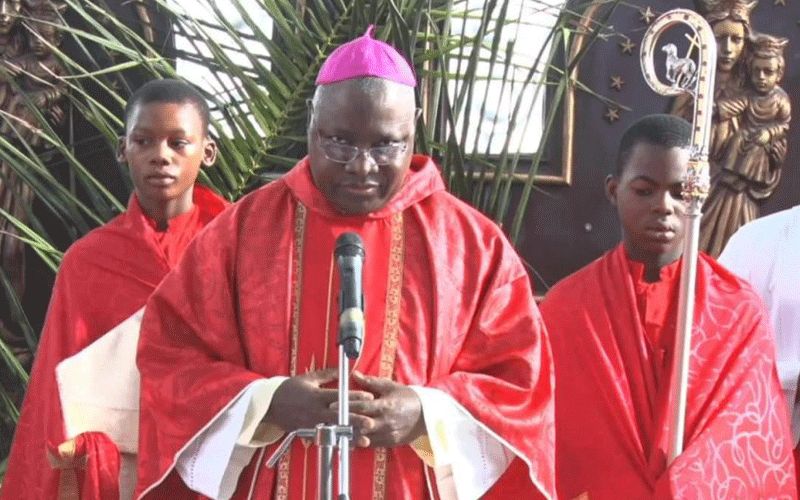He said that during the persecution in Ireland, the Irish Catholics had to escape to the rocks to celebrate Masses.
“They (Irish Catholics) could not participate at Mass safely in their Churches. Many priests and bishops were forced into hiding or exile,” he said.
Archbishop Kaigama said that Bishops, Cardinals and priests imprisoned for years in Communist China had no chance of celebrating Mass, adding that, “The Chinese Catholics even up to now hide in homes or any available space to celebrate Mass or to pray.”
He said that in Madagascar, when the French missionaries were expelled, the Church continued to remain functional through the initiative of a few young men who kept the faith after the expulsion of missionaries during the French war with Madagascar.
“Even without the celebration of Mass they had spiritual communion and kept the Church going until after the return of the missionaries who found a flourishing Church. The point here is that the catechists and laity kept things going by their daily prayers and doing what they could do as Catholics even when they had no opportunity to have the Mass or do their normal Eucharistic devotions,” Archbishop Kaigama said in his official Facebook account.
(Story continues below)
He urged the faithful in Nigeria not to be anxious over not attending Mass, an act which he said wasn’t their choice.
“Dear brothers and sisters, Coronavirus has kept you home. You did not choose not to come to Mass which is a spiritual obligation for all Catholics. This is due to the peculiar circumstance we find ourselves in,” the Nigerian Prelate said.
He added, “Be at peace! We pray and hope that very soon a cure can be found and all our anxiety will be over by the grace of God and we can resume our normal spiritual and pastoral activities.”
He also called upon the Faithful to keep up with the habit of prayer and to “do the normal things we Catholics are expected to do every day in a more recollected way.”
“The moment you wake up from sleep, say your morning prayers; pray the angelus at 6 am, 12 noon, 6 pm; say your prayers before and after meals and work as well as your morning and night prayers,” the Archbishop Kaigama said and added, “Develop the habit of saying ejaculatory prayers such as: ‘Jesus I love you’. ‘Jesus I trust in you’, ‘thank you Jesus’. Constantly make the sign of the cross invoking the presence of God the Father, the Son and the Holy Spirit.”
Hinting on his personal devotion, the Archbishop said, “My short prayer I say in my language of Jukun-Kona when I kneel before the Blessed Sacrament is: “Nsa usuko kurmam, kurmam wha yi vo yai.” (I thank you God, O God come to help me).”








